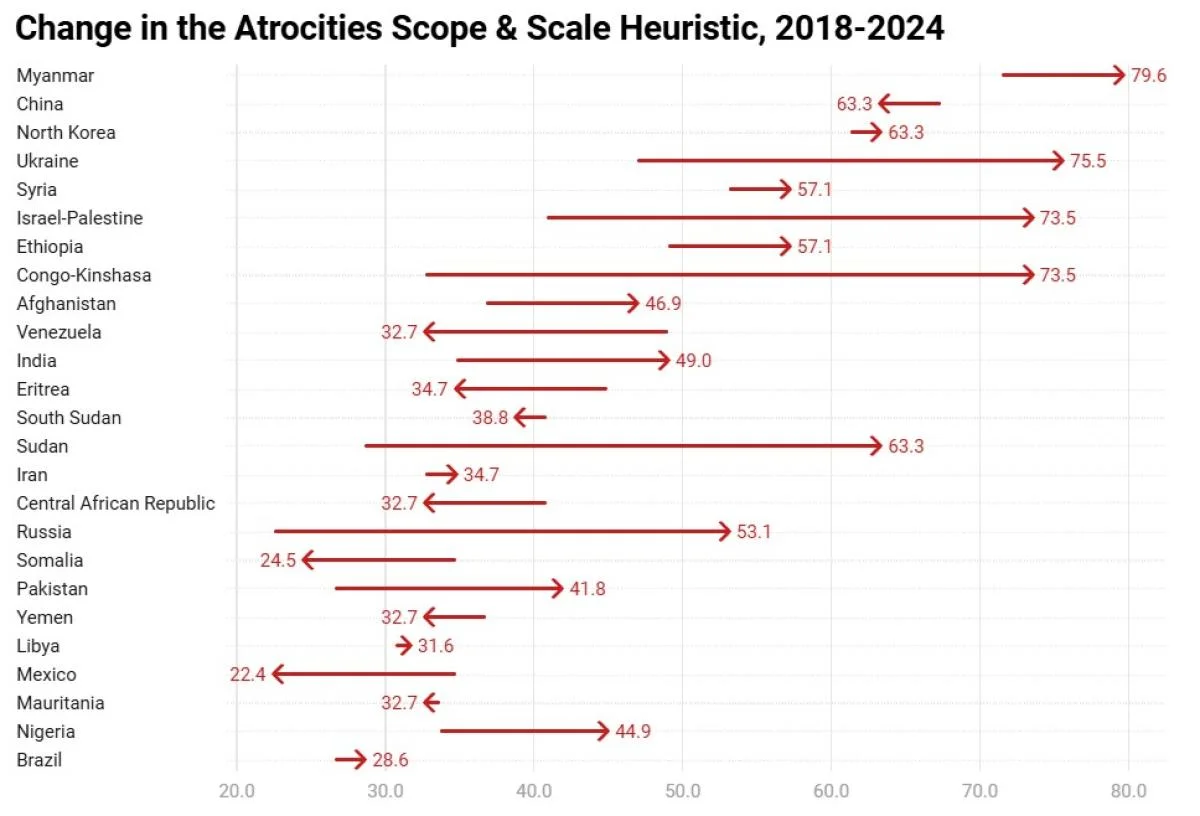By: Sylvia Morna Freitas
Collin J. Meisel, acting director of analysis at the Pardee Institute, and his colleagues have just finished their analysis of the Pardee Institute’s Perceived Mass Atrocities Dataset (PMAD) for 2024—and the news is grim. According to the global dataset, people living in 111 countries around the world experienced some form of mass atrocity in the past year.
Covering 196 countries, the dataset aims to determine the breadth and severity of humanitarian suffering in each country under a single metric. The PMAD highlights several regions where analysis of atrocities using data on lethal atrocities only would be inadequate. In the project, a mass atrocity is an act of violence against 25 or more defenseless members of a social, cultural, ethnic, religious, or political group. The acts are rated on a scale of “lethal to less lethal,” which provides a more nuanced scope of threats of human suffering worldwide. For example, 2024 saw a slight decrease in the number of lethal atrocities from 2023. Still, several types of “less lethal” atrocities—actions involving gross, intentional violations of human rights on a mass scale, short of murder—were more numerous.
But as grim as these reports are, the work Meisel and his team complete is integral to providing an evidence-based foundation for future action. “By systematically tracking these atrocities, we increase the chance that perpetrators will one day be held accountable,” says Acting Director of Analysis Collin Meisel.

Countries with the top 25 worst average values for all years from 2018-2024, sorted from highest to lowest. *Events for 2024 data still under review; values may be underestimated.
Chart: The Conversation, CC-BY-ND Source: Frederick S. Pardee Institute for International Futures, Perceived Mass Atrocities Dataset Created with Datawrapper
In addition, because the PMAD classes atrocities under a single metric, it provides a measure to facilitate research on the relationship between mass atrocities and a myriad of other interconnected factors, such as state stability and conflict, economic development, colonialism, and gender equality.
Having an empirical framework to tease out these relationships allows us to better understand the risk factors and consequences of mass atrocities within the larger fabric of the world.
PMAD is sponsored by the U.S. Government and built to support the U.S. Congress’s Elie Wiesel Genocide and Atrocities Prevention Act of 2018, which was enacted to prevent acts of genocide and other atrocity crimes through the recognition of patterns of escalation and the methods that prevent them. Elie Wiesel was a Holocaust survivor and Nobel laureate who implored the world not to turn away from atrocities but to bear witness. PMAD is a manifestation of that charge and is one of various datasets used by the US Government for monitoring, evaluation, and learning about mass atrocities worldwide.
More here in The Conversation.


